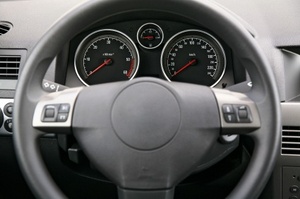Drivers often have their head in the sand when it comes to the safety of their brakes and other critical components, resulting in death and injury, says research out today from Brake and Direct Line...
Drivers often have their head in the sand when it comes to the safety of their brakes and other critical components, resulting in death and injury, says research out today from Brake and Direct Line.
When surveyed by the road safety campaigner and motor insurer, more than two in five (42%) of car and van drivers admitted to driving with one or more dangerous defects within the past year - including driving with defective tyres (with worn tread, wrong pressure, cracks or bulges), driving in the dark with broken lights and indicators, driving with poor brakes, and having dirty mirrors and windows and wrong oil or water levels.
The biggest concern revealed by the survey is drivers' lack of knowledge about their braking systems, the most critical safety component on a vehicle.
The ability of a car or van to stop relies on brake pads (the friction material that stops the wheels when the brakes are applied) not being worn out and other braking components not being damaged. Yet when surveyed by Brake and Direct Line, more than four out of five (84%) car and van drivers said they didn't know the percentage of wear on their brake pads at the time of their vehicle's last check up.
Almost as many drivers (nearly three out of four - 73%) only had their brakes checked during their vehicle's annual service or MOT, leaving lots of time for their brakes to become dangerously ineffective if they were only just acceptable at the previous check.
Mary Williams OBE, chief executive of Brake says: “This research shows a shockingly low level of knowledge and concern among drivers when it comes to the safety of their vehicle, particularly 'out of sight, out of mind' components such as brakes which are so safety critical. Drivers seem to be placing far too much reliance on their annual MOT and passively relying on their garage to tell them when to replace components, rather than asking questions about level of wear and deciding to take action now rather than too late. Drivers cannot abdicate responsibility for safety to their garage. If your vehicle causes a crash due to a mechanical defect, it will be you in the dock.
She adds: “Drivers should also learn how to do effective daily walk round checks of their vehicle to check windscreens, mirrors, lights and tyres. If you are unsure how to check your vehicle, don't be embarrassed - ask your mechanic and read your vehicle's manual.â€
Andy Goldby, Director of Motor Underwriting at Direct Line says: “Drivers seem to be willing to drive their vehicles when they are not safe, endangering the lives of themselves and others. Many may find if they were to have an accident that is attributed to the fault, they could invalidate their insurance and end up with a criminal conviction. Drivers need to take responsibility and undertake regular inspections of their vehicle, rather than believing that a once a year check, such as a service or MOT, is a guarantee of safety for the next twelve months.â€
Despite most drivers showing a shocking lack of awareness of the wear on their brake pads, an overwhelming majority of drivers surveyed - nearly nine out of 10 (86%) - said that they were confident their brakes would be found to be in good working order if checked today, suggesting that many more drivers unwittingly are driving defective vehicles than admit to it.
Drivers surveyed displayed a similar lack of knowledge when it came to their tyres' safety. Only just more than one in four car and van drivers (27%) were able to correctly state the minimum tyre tread depth for their vehicle.


